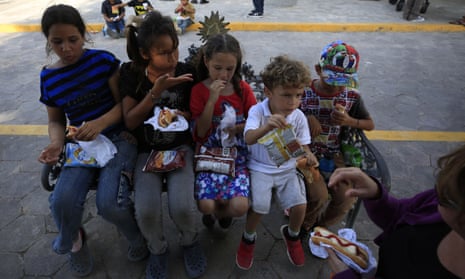More than 8 million children could lose their health insurance under a controversial US government proposal that would penalize immigrants for using benefits if they apply for green cards or visas, according to new research.
The “public charge rule”, proposed by the Department of Homeland Security (DHS) in September, would require immigration officers to assess whether an applicant had received benefit from programs like Medicaid, food aid and public housing.
The changes are expected to prompt a wave of immigrant parents to remove their children from healthcare provisions for fear of affecting their visa status.
The damning study, published in the Journal of the American Medical Association (JAMA), on the implications of the rule found it could prove catastrophic to children who currently rely on the benefits for healthcare and claimed it “violates human rights”.
The study’s authors said it would put 8.3 million children currently enrolled in Medicaid, Children’s Health Insurance Program (Chip) or receiving Supplemental Nutrition Assistance Program (Snap) benefits at risk – including 5.5 million children with specific medical needs.
These include 615,842 children with asthma, 583,700 with disabilities or functional limitations, 53,728 with epilepsy and 3,658 with cancer.
It is currently not known when the new measure will come into effect, but the report states that over 260,000 public comments have been submitted to DHS about the proposed rule. By law, they are required to review and respond to all of them before the final rule can be published.
The authors concluded that children who lose coverage as a result of the rule, and become uninsured as a result, “are likely to forego or delay needed care”. Meanwhile, children with conditions such as epilepsy or asthma and newborns losing out on immunizations “are likely to incur higher long-term health costs”.
But they said their biggest concerns were ethical and called on healthcare professionals to “speak out” about the issue.
“Our main concerns are not economic but ethical. We believe that denial of needed health care and nutrition to anyone, but particularly to children, violates human rights. We call on the medical community to speak out against this unjust and unethical proposal to change the public charge rule,” stated the report.
